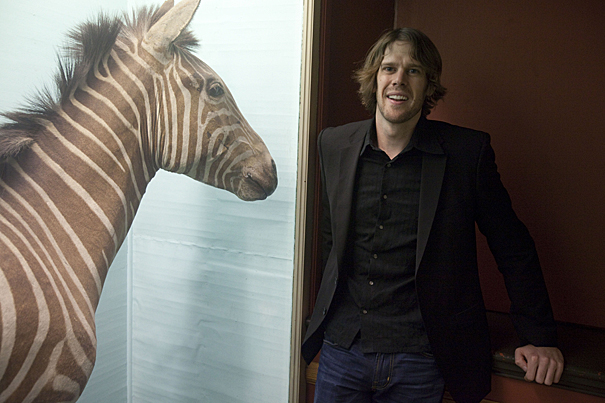Health
-
Lin Test
text with link. This is a quiz. Some text Name Name Quo modo autem philosophus loquitur? Tecum optime, deinde etiam cum mediocri amico. Invidiosum nomen est, infame, suspectum. Name Name…
-

Gender-affirming care is rare, study says
Fewer than 1 in 1,000 transgender youth receive hormones or puberty blockers

-

Nature offers novel approach to oral wound care
Slug’s sticky mucus inspiration behind adhesive hydrogel that can seal wounds in wet environment

-

Time for a rethink of colonoscopy guidelines?
Change informed by new findings would help specialists focus on those most at risk, researcher says

-

Should pharmacists be moral gatekeepers?
‘The problem is not opioids,’ says author of ‘Policing Patients’ — it’s overdose, pain
-

The deadly habit we can’t quite kick
Actions by tobacco companies worry researcher even amid ‘dramatic decrease’ in smoking among young Americans

-
A man of endless curiosity
Emre Basar seeks to understand how small interfering RNA (siRNA) can be harnessed and integrated into cells with the goal of silencing the expression of certain proteins that allow diseases like breast cancer and HIV to proliferate inside the body.
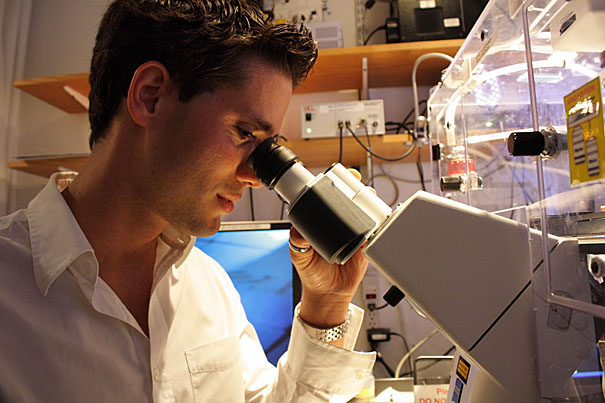
-
Love life
A new Harvard study shows that ratios between males and females affect human longevity.
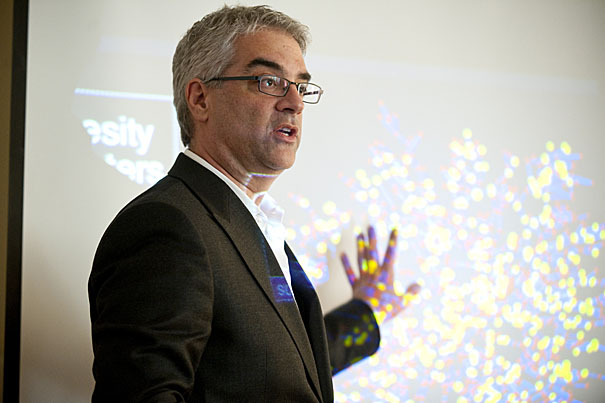
-
Excess maternal weight gain increases birth weight, study finds
Expectant mothers who gain large amounts of weight tend to give birth to heavier infants who are at higher risk for obesity later in life. But it’s never been proven that this tendency results from the weight gain itself, rather than genetic or other factors that mother and baby share.
-
Insights on healthy aging
New research from Harvard scientists shows that exercise and caloric restriction rejuvenate synapses in laboratory mice, illuminating a reason for the beneficial effects of these regimens on aging.

-
Exercise, calorie restrictions can rejuvenate older synapses
Harvard researchers have uncovered a mechanism in mice through which caloric restriction and exercise delay some of the debilitating effects of aging by rejuvenating the connections between nerves and the muscles that they control.
-
Vaccine vacuum
Small increases in vaccine costs can cause large gaps in protection, study finds. Also, vaccine “scares” may do more harm than previously believed to a population’s “herd immunity.”
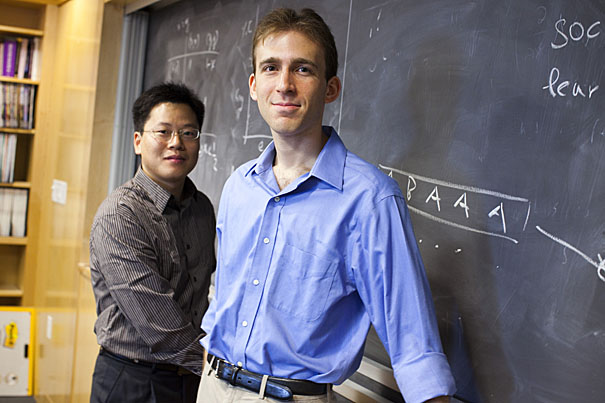
-
Warnings of suicidal intent
Two powerful new tests developed by Harvard psychologists show great promise in predicting patients’ risk of attempting suicide, researchers say. These tests may help clinicians to overcome their reliance on…
-
Scadden, Zon win Hematology Society awards
Two Harvard professors will receive awards from the American Society of Hematology for their “significant contributions to the understanding and treatment of hematologic diseases.” David Scadden, who is co-director of the…
-
Medical School revises conflict of interest policy
Harvard Medical School (HMS) released a series of revisions to its conflict of interest (COI) policy today that strengthens its commitment to transparency and financial disclosure while recognizing the School’s commitment…
-
Constant temps key to biodiversity
New paper answers the long-standing scientific question about cause of tropics’ stunning biodiversity.

-
Two HSCI groups find residual genetic ‘memory’ in iPS cells;
Two groups of Harvard Stem Cell Institute researchers have independently made similar discoveries about the characteristics of induced pluripotent stem cells (iPSCs), but they have reached somewhat different conclusions about the implications…
-
Better odds
Test could predict which children with T-cell acute lymphoblastic leukemia are best candidates for clinical trials of new therapies, research finds.
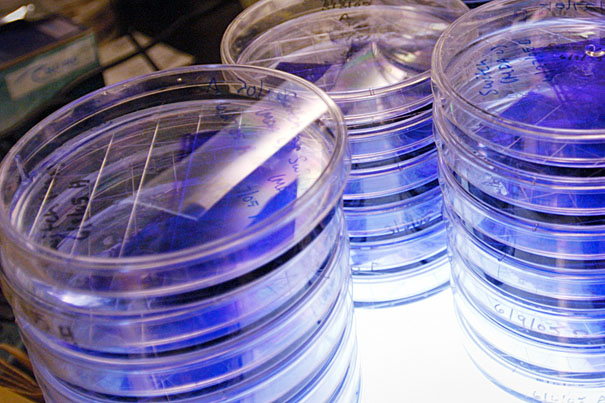
-
A bloomin’ spectacle
A rare and curious plant from Sumatra’s rainforest has bloomed at Harvard.
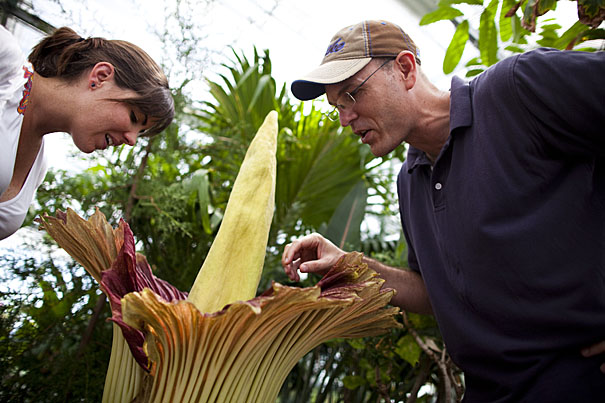
-
‘Test and treat’ won’t stop HIV/AIDS epidemic, study finds
Implementing a program of universal HIV testing and immediate antiretroviral treatment (ART) for infected individuals could have a major impact on the HIV/AIDS epidemic in Washington, DC, but a new study by led by…
-
Throwing a genetic switch
Study finds that maternal genes in mice predominate in the developing brain, while paternal genes gain the upper hand in adulthood. Researchers also find 1,300 imprinted genes in the brain, far more than previously known.
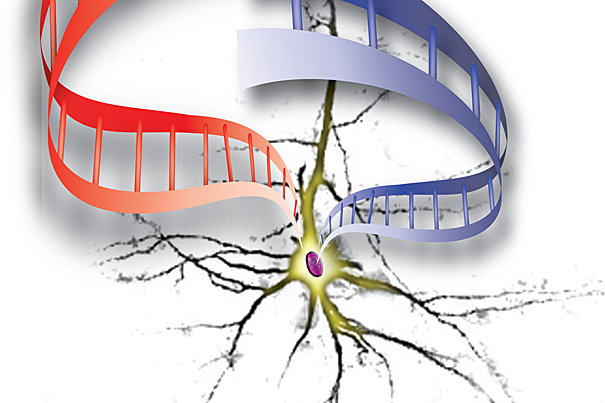
-
Mom’s influence comes first
Genome-wide analysis of mice brains has found that maternally inherited genes are expressed preferentially in the developing brain, while the pattern shifts decisively in favor of paternal influence by adulthood.…
-
Study finds higher STD rates among users of erectile dysfunction drugs
Users of erectile dysfunction (ED) drugs have higher rates of sexually transmitted disease (STD) than do non-users, Harvard researchers at Massachusetts General Hospital have found after analyzing insurance records of…
-
More Than Two Billion People Worldwide Lack Access to Surgical Services
More than two billion people worldwide do not have adequate access to surgical treatment, according to a new study from the Harvard School of Public Health (HSPH). The Harvard researchers…
-
Rare variants in gene coding may up risk of autoimmune disorders
Rare variants in the gene coding of an enzyme that controls the activity of a key immune cell occur more often in people with autoimmune disorders like rheumatoid arthritis and…
-
With fasting, enzyme turns off body’s production of fats, cholesterol
Fasting helps cause an enzyme with several important roles in energy metabolism to turn off the body’s generation of fats and cholesterol, Harvard researchers at Massachusetts General Hospital have found. …
-
Using nanotechnology to improve a cancer treatment
Harvard and Brigham and Women’s Hospital researchers have devised a method that may allow clinicians to use higher doses of a powerful chemotherapy drug that has been limited because it is toxic not only to tumors but to patients’ kidneys.
-
Improving a cancer drug
Researchers, led by Harvard Medical School Assistant Professor Shiladitya Sengupta, have devised a way to improve a low-cost, effective cancer drug, cisplatin, whose use has been limited by its toxicity.
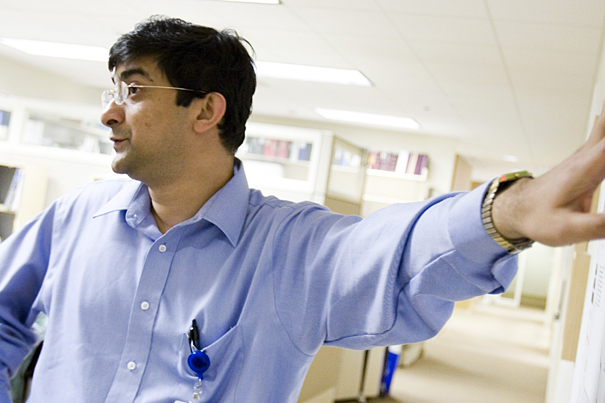
-
The immune system and HIV
Researchers gather to share information about the latest advances in understanding how the oldest part of the body’s immune system might help in the fight against HIV and AIDS.

-
A long look at growing old
The Glenn Laboratories hosted the annual symposium on aging, reviewing new developments in understanding the mechanisms of growing old.
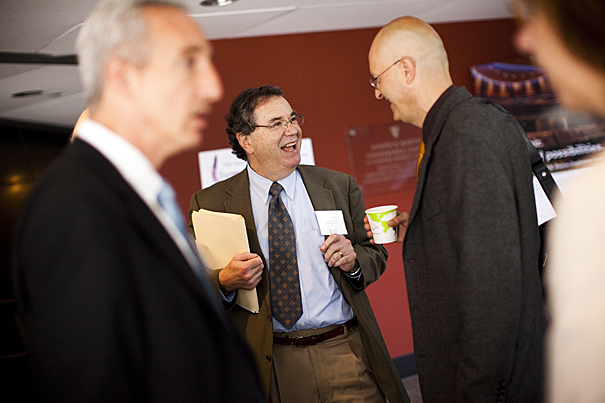
-
Be wary of the cassowary
Nature writer Sy Montgomery talked about her hunt for the dangerous cassowary, as well as her passion for nature, during a presentation at the Harvard Museum of Natural History.
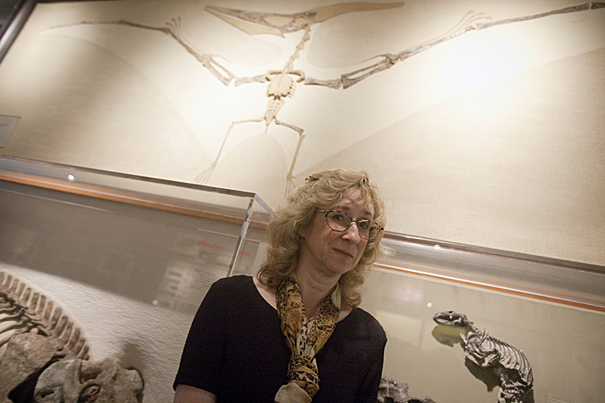
-
Nobel winners and losers
Author Erling Norrby discusses how the Nobel Prizes for the sciences, while often awarding breakthrough efforts, also can miss pivotal findings that made a difference.
-
New type of human stem cell may be more easy to manipulate
Harvard Stem Cell Institute (HSCI) researchers at the Massachusetts General Hospital Center for Regenerative Medicine (MGH-CRM) have a developed a new type of human pluripotent stem cell that can be…
-
New drug extends life of melanoma patients
A therapy that multiplies the effect of a natural disease-fighting antibody has extended the lives of patients with metastatic melanoma in a large, international clinical trial.
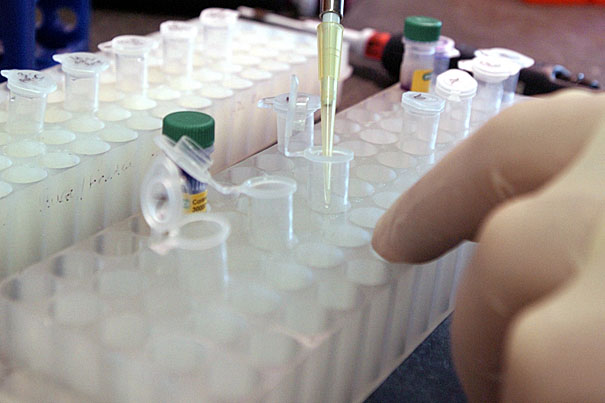
-
The art of science
Susan Mango, professor of molecular and cellular biology and MacArthur award winner, brings her unorthodox approach to research.
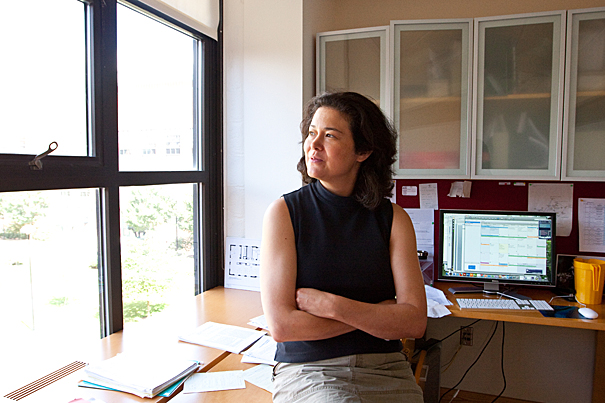
-
In praise of unwanted termites
The star of Africa’s savanna ecosystems may be the lowly insect. Its regularly spaced mounds prove a key to maintaining ecological function in the area.
